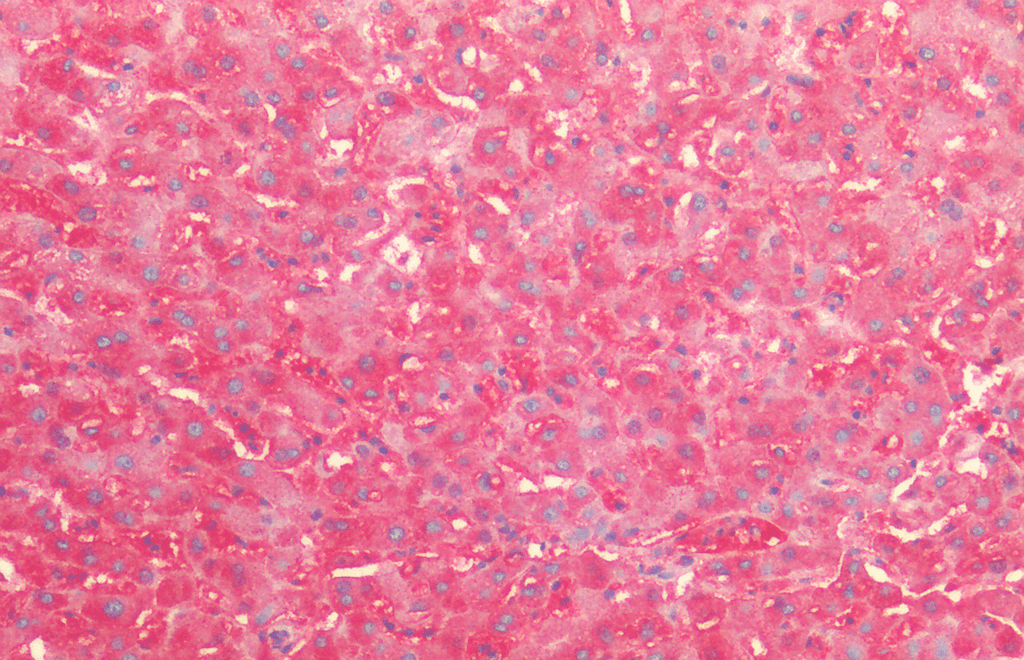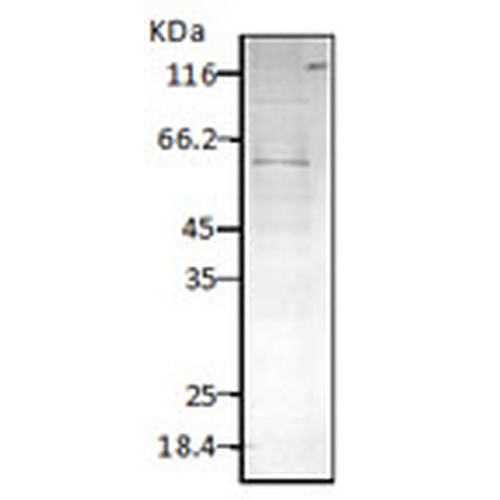Anti-PfHsp60 Antibody (11146)
Data
- -
- -
Antibody DetailsProduct DetailsReactive Species P. Facilparum Host Species Rabbit Immunogen Recombinant full-length PfHsp60 (Accession no. XM_001347402.1) Product Concentration Lot Specific Formulation PBS (1.83mg/ml), pH 7.4, 50% glycerol, 0.09% sodium azide State of Matter Liquid Product Preparation Purified by Protein A affinity chromatography Storage and Handling This antibody is stable for at least one (1) year at -20°C. Regulatory Status For in vitro investigational use only. Not
intended for diagnostic or therapeutic
applications. Country of Origin USA Shipping Next Day 2-8°C Applications and Recommended Usage? Quality Tested by Leinco Immunoblotting: use at 1ug/mL. A band of ~62kDa is detected.
These are recommended concentrations. Endusers should determine optimal concentrations for their applications. Each investigator should determine their own optimal working dilution for specific applications. See directions on lot specific datasheets, as information may periodically change. DescriptionDescriptionSpecificity This antibody recognizes P. falciparum Hsp60 and cross-reacts with E.coli Hsp60/GroEl. Background Hsp60 is an abundant, constitutively produced heat shock protein that increases in cellular concentration in response to cell shock. It is found in multiple species and is notably homologous in bacteria, plants, and mammals. Hsp60 of Plasmodium falciparum is a polypeptide of 577 amino acids with a calculated molecular weight of 62158 Da. The primary structure of P. falciparum hsp60 contains a putative mitochondrial targeting peptide at its amino- terminus and a GGM motif at its carboxyl- terminus. The overall structure exhibits strong conservation (approximately 50%) to the hsp60 from human and other eukaryotes, but only low homology (< 30%) to a recently reported P. falciparum chaperonin 60 gene. The P. falciparum hsp60 gene is located on chromosome 10. During heat shock, the level of hsp60 transcript in blood stage parasites increases significantly and its accumulation correlates with the duration of the induction. Function Implicated in mitochondrial protein import and macromolecular assembly. May facilitate the correct folding of imported proteins. May also prevent misfolding and promote the refolding and proper assembly of unfolded polypeptides generated under stress conditions in the mitochondrial matrix. UniProt.org Research Area Heat Shock & Stress Proteins References & CitationsTechnical ProtocolsCertificate of Analysis |
 Products are for research use only. Not for use in diagnostic or therapeutic procedures.
Products are for research use only. Not for use in diagnostic or therapeutic procedures.




